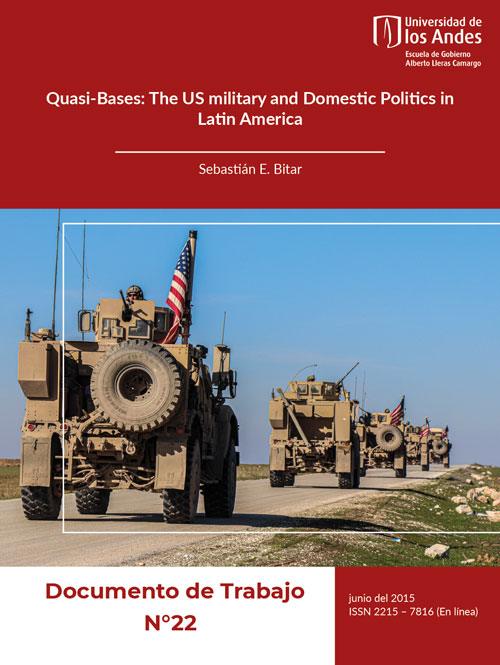Descargar Quasi-Bases: The US military and Domestic Politics in Latin America
This paper explores the phenomenon of US quasi-bases in Latin America, which are semi-formal agreements that grant the US military tacit access to local military bases without a formal lease. While the importance of formal US bases in the region has dramatically decreased, a network of quasi-bases provides critical support for US antidrug operations from Central to South America. The paper builds on Alexander Cooley’s theory of base politics (2008) to explain why formal bases are more difficult to open and maintain as democracy expands in the region, and categorizes previously unstudied quasi-base arrangements. Democratic expansion affects foreign military bases in three ways. Formal base negotiations are likely to succeed if the benefits of hosting foreign bases are not only perceived by the local government but also by the opposition. Conversely, when the benefits are concentrated in the government and its clients, excluded political groups are likely to oppose the base. The electoral strength of the opposition and the existence of institutional mechanisms autonomous of the government increase the chances that the opposition will succeed in blocking the base negotiations. However, when formal basing agreements fail, or when the type of operations requires secrecy and informality, interested governments may still negotiate alternative arrangements, such as quasi-bases, which are more difficult for the opposition to contest.
Autor: Sebastián E. Bitar

